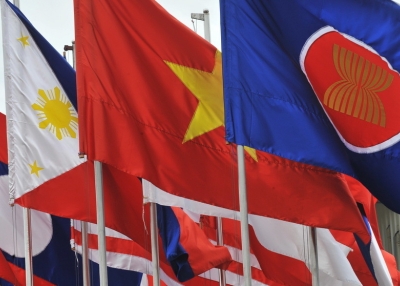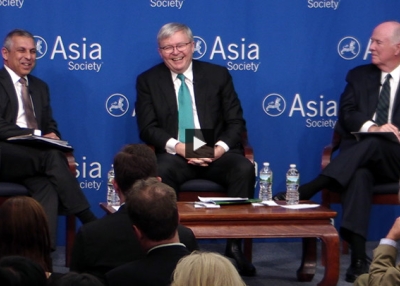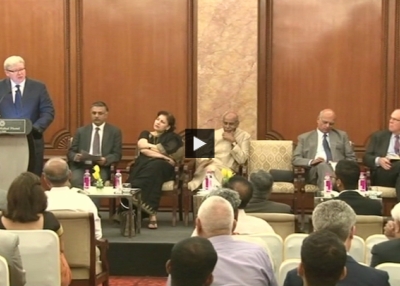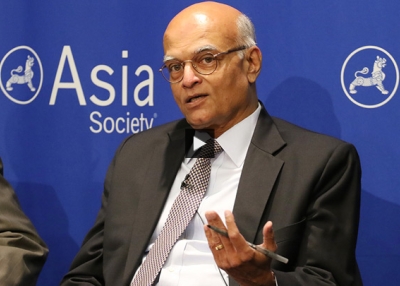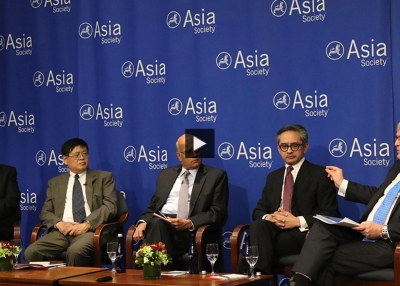Securing Peace in Asia
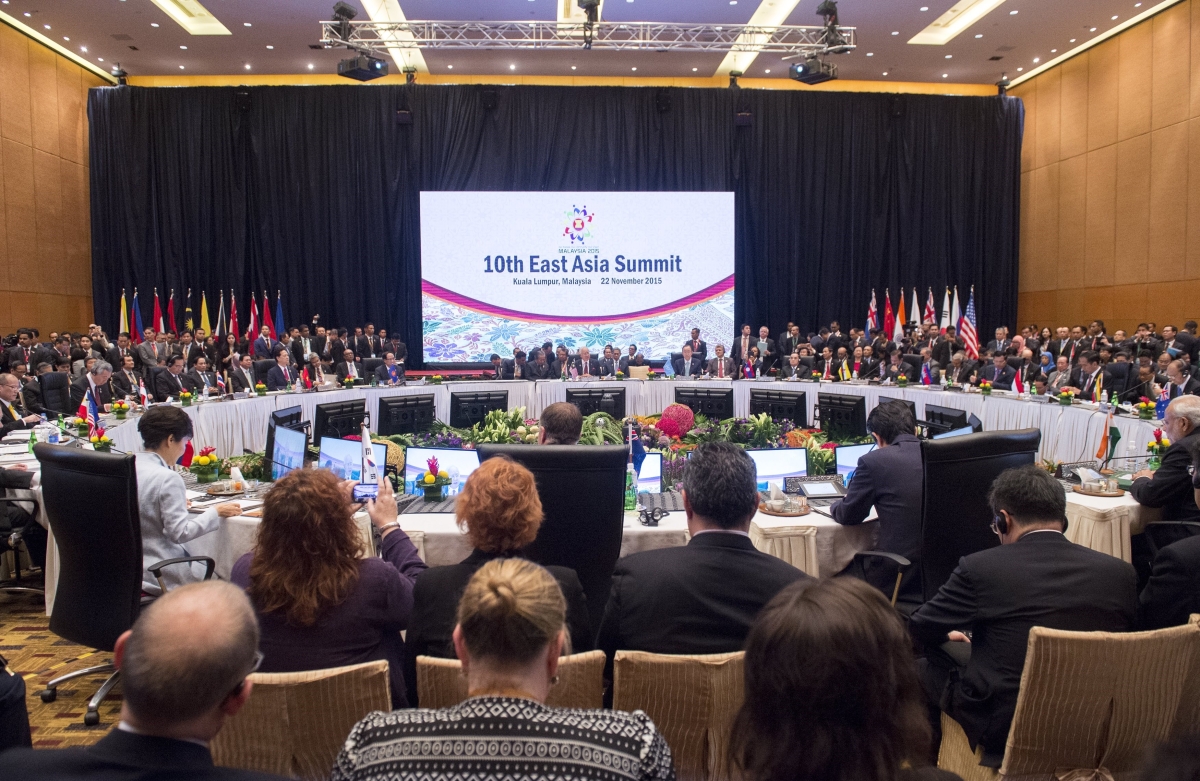
Leaders participate in the East Asia Summit at the Kuala Lumpur Convention Centre on November 22, 2015. (Saul Loeb/AFP/Getty Images)
SAUL LOEB/AFP/Getty Images
The Asia Society Policy Institute (ASPI) has launched an initiative focused on strengthening regional mechanisms that can help prevent crisis and conflict in Asia. Specifically, this initiative explores a few simple, but important, questions: amid rapid geopolitical changes, how can the Asia-Pacific region maintain the unprecedented security and prosperity it has enjoyed for the past several decades? And in the midst of regional uncertainty, what difference can regional political institutions make?
This initiative is led by a high-level Policy Commission of senior policy practitioners with extensive experience in Asian security issues and regional institutions. The Policy Commission is tasked with exploring critical regional and global trends that challenge the existing regional security architecture in Asia, identifying potential pathways to reform that could help address institutional deficits; and making recommendations for next steps that could be taken by regional governments.
Policy Commission Members
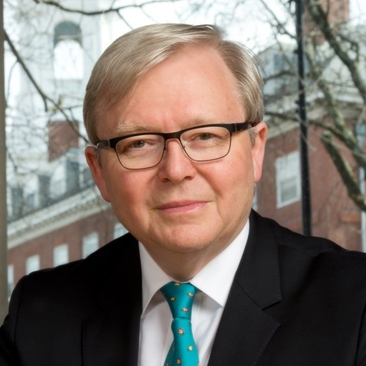 The Hon. Kevin Rudd is the inaugural President of the Asia Society Policy Institute. He served as Australia’s 26th Prime Minister and as Foreign Minister. As Chair of the Independent Commission on Multilateralism, Mr. Rudd is leading a review of the UN system. He is a Distinguished Fellow at Chatham House in London, a Distinguished Statesman with the Center for Strategic and International Studies in Washington, and a Distinguished Fellow at the Paulson Institute in Chicago. He is proficient in Mandarin Chinese, serves as a Visiting Professor at Tsinghua University in Beijing, and co-chairs the China Global Affairs Council of the World Economic Forum.
The Hon. Kevin Rudd is the inaugural President of the Asia Society Policy Institute. He served as Australia’s 26th Prime Minister and as Foreign Minister. As Chair of the Independent Commission on Multilateralism, Mr. Rudd is leading a review of the UN system. He is a Distinguished Fellow at Chatham House in London, a Distinguished Statesman with the Center for Strategic and International Studies in Washington, and a Distinguished Fellow at the Paulson Institute in Chicago. He is proficient in Mandarin Chinese, serves as a Visiting Professor at Tsinghua University in Beijing, and co-chairs the China Global Affairs Council of the World Economic Forum.
 Thomas E. Donilon is Vice Chair of the international law firm O’Melveny & Myers, where he serves on the firm’s global governing committee. He is also Senior Director at the BlackRock Investment Institute. From 2010 to 2013, he served as National Security Advisor to President Barack Obama. Mr. Donilon previously served as Assistant to the President and principal Deputy National Security Advisor. He has worked closely with and advised three U.S. Presidents since his first position in the White House in 1977.
Thomas E. Donilon is Vice Chair of the international law firm O’Melveny & Myers, where he serves on the firm’s global governing committee. He is also Senior Director at the BlackRock Investment Institute. From 2010 to 2013, he served as National Security Advisor to President Barack Obama. Mr. Donilon previously served as Assistant to the President and principal Deputy National Security Advisor. He has worked closely with and advised three U.S. Presidents since his first position in the White House in 1977.
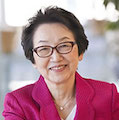 The Hon. Yoriko Kawaguchi was a member of Japan’s House of Councilors from 2005 to 2013. She co-chaired the International Commission on Nuclear Non-Proliferation and Disarmament from 2008 to 2010. She previously served as Special Adviser to the Prime Minister of Japan on foreign affairs (2004-2005); Minister for Foreign Affairs (2002-2004); and Minister for the Environment (2000-2002). She has also been a Minister at the Embassy of Japan to the U.S. and Director-General of Global Environmental Affairs at the Ministry of International Trade and Industry.
The Hon. Yoriko Kawaguchi was a member of Japan’s House of Councilors from 2005 to 2013. She co-chaired the International Commission on Nuclear Non-Proliferation and Disarmament from 2008 to 2010. She previously served as Special Adviser to the Prime Minister of Japan on foreign affairs (2004-2005); Minister for Foreign Affairs (2002-2004); and Minister for the Environment (2000-2002). She has also been a Minister at the Embassy of Japan to the U.S. and Director-General of Global Environmental Affairs at the Ministry of International Trade and Industry.
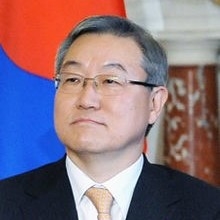 Sung-Hwan Kim is currently serving as Chairman of the Gangwon Art and Culture Foundation and as a visiting professor at the Graduate School of International Studies at Seoul National University. He served as Minister of Foreign Affairs and Trade of the Republic of Korea from 2010 to 2013. He was appointed as a member of the UN Secretary-General’s High-Level Panel of Eminent Persons on the Post-2015 Development Agenda in July 2010. He is currently a member of the Preparatory Committee for the 2018 Winter Olympics in Pyeongchang.
Sung-Hwan Kim is currently serving as Chairman of the Gangwon Art and Culture Foundation and as a visiting professor at the Graduate School of International Studies at Seoul National University. He served as Minister of Foreign Affairs and Trade of the Republic of Korea from 2010 to 2013. He was appointed as a member of the UN Secretary-General’s High-Level Panel of Eminent Persons on the Post-2015 Development Agenda in July 2010. He is currently a member of the Preparatory Committee for the 2018 Winter Olympics in Pyeongchang.
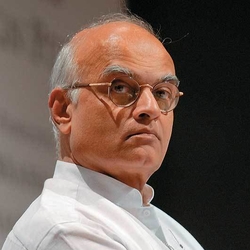 Shivshankar Menon is a career Indian diplomat who served as National Security Advisor to the Prime Minister of India from 2010 to 2014. He is currently serving as the Fisher Family Fellow at the Belfer Center at Harvard University. Previously, he was India’s Foreign Secretary from October 2006 to August 2009 and served as Ambassador and High Commissioner of India to Israel (1995-97), Sri Lanka (1997-2000), China (2000-2003) and Pakistan (2003-2006).
Shivshankar Menon is a career Indian diplomat who served as National Security Advisor to the Prime Minister of India from 2010 to 2014. He is currently serving as the Fisher Family Fellow at the Belfer Center at Harvard University. Previously, he was India’s Foreign Secretary from October 2006 to August 2009 and served as Ambassador and High Commissioner of India to Israel (1995-97), Sri Lanka (1997-2000), China (2000-2003) and Pakistan (2003-2006).
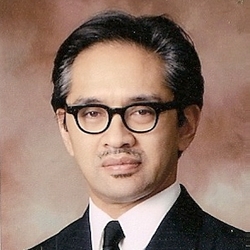 Dr. Marty Natalegawa served as Minister of Foreign Affairs in the Second United Indonesia Cabinet from 2009 to 2014. Born in Bandung, West Java, Dr. Natalegawa held several positions in the Indonesian government, including Director-General of ASEAN Cooperation, Ambassador to the United Kingdom, and Ambassador to Ireland. He was appointed Permanent Representative of Indonesia to the United Nations in 2007. During his tenure at the United Nations, he served as the President of the United Nations Security Council.
Dr. Marty Natalegawa served as Minister of Foreign Affairs in the Second United Indonesia Cabinet from 2009 to 2014. Born in Bandung, West Java, Dr. Natalegawa held several positions in the Indonesian government, including Director-General of ASEAN Cooperation, Ambassador to the United Kingdom, and Ambassador to Ireland. He was appointed Permanent Representative of Indonesia to the United Nations in 2007. During his tenure at the United Nations, he served as the President of the United Nations Security Council.
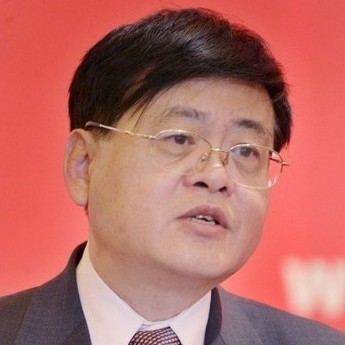 Wang Jisi is President of the Institute of International and Strategic Studies, Peking University, and a professor of the School of International Studies, Peking University. He has been a member of the Foreign Policy Advisory Committee of the Foreign Ministry of China since 2008. Professor Wang is a Global Scholar of Princeton University (2011-2015) and is on the editorial board of The American Interest. He has published widely on Chinese foreign policy, China-U.S. relations, and Asian security.
Wang Jisi is President of the Institute of International and Strategic Studies, Peking University, and a professor of the School of International Studies, Peking University. He has been a member of the Foreign Policy Advisory Committee of the Foreign Ministry of China since 2008. Professor Wang is a Global Scholar of Princeton University (2011-2015) and is on the editorial board of The American Interest. He has published widely on Chinese foreign policy, China-U.S. relations, and Asian security.

